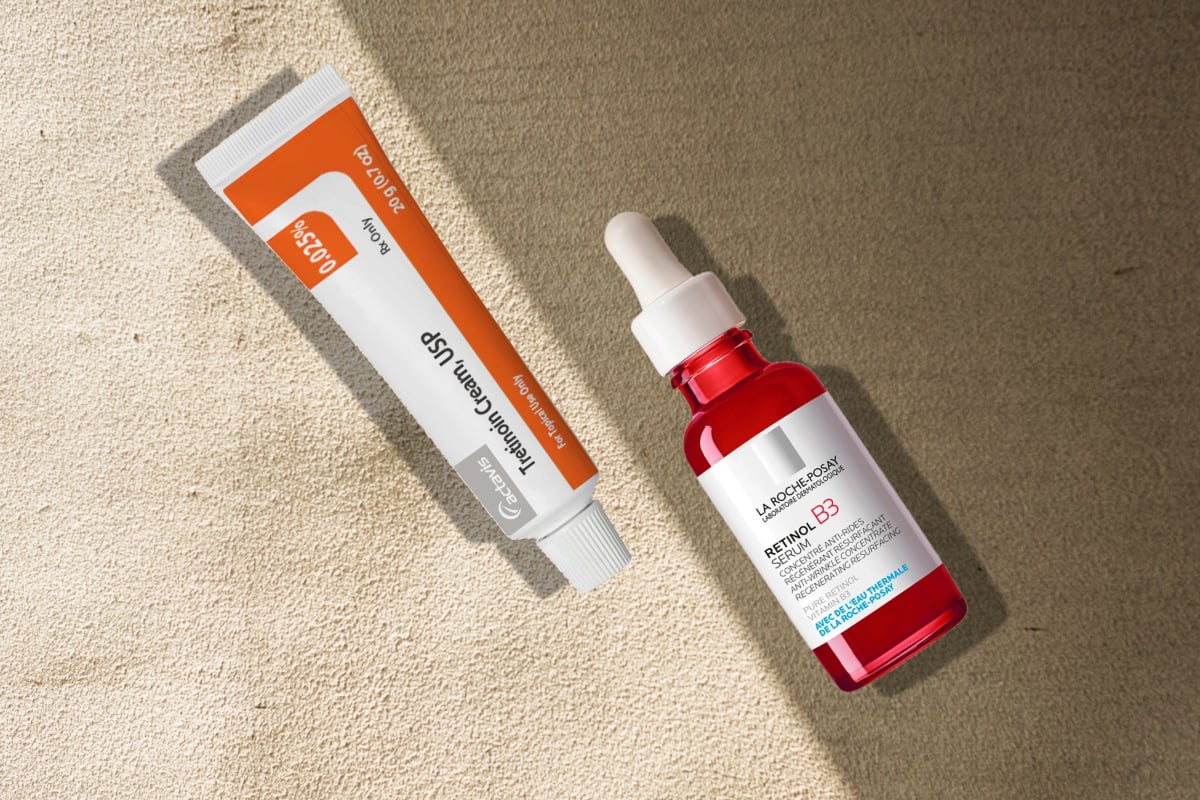When it comes to moisturizing, nothing holds a candle to hyaluronic acid. This humectant works hard to draw water from the environment and trap it in the skin, helping retain moisture and boost hydration. But the rise of clean beauty has taught us that the skincare world is chocked of natural extracts that can quench the skin’s thirst — though it’s hard to mimic some of the stunning results you’ll get with hyaluronic acid.
While not every plant or botanical ingredient can compete with this super hydrator, we’ve pulled out the most promising natural alternatives to hyaluronic acid that promises to hike up moisture levels.
Aloe vera
Since aloe vera acts as a humectant when it’s applied topically, it has moisturizing effects similar to hyaluronic acid.[1] It also speeds up wound healing, softens, and has anti-inflammatory and antibacterial benefits. Besides, the leaf gel contains polysaccharides, which are components of the skin responsible for retaining water (for the record, hyaluronic acid is also a polysaccharide).[2] According to a study, when used in concentrations of 0.25% and 0.50%, the extract of aloe vera can increase skin hydration in a single application, so indeed, it’s one of the best hyaluronic acid alternatives for those devoted to natural skincare.[3]
Cassia angustifolia seed polysaccharide
Another natural alternative to hyaluronic acid is the polysaccharides extracted from the seeds of Cassia angustifolia (a native Indian plant). This ingredient is more and more used in skincare products because it provides long-lasting hydration and restores the skin’s protective barrier. Just like hyaluronic acid, it reduces transepidermal water loss, and even more, Cassia angustifolia seed polysaccharide is an emollient, meaning it helps lock in moisture and softens rough skin.
Centella asiatica
Centella asiatica (or cica or Gotu Kola) is one of the greatest multitaskers that stepped into the skincare scene, packing anti-inflammatory, antioxidant, anti-aging, and moisturizing benefits.[4] One of its main roles is to form an occlusive layer around the skin to prevent water loss and restore the barrier function. More than that, since it contains flavonoids and amino acids, it can hinder the degradation of hyaluronic acid, which in turn supports the skin’s natural ability to retain moisture. According to research, 5% topical Centella asiatica can improve skin hydration by 25%, thanks to the reduced transepidermal water loss.[4]
Related: 15 Best Centella Asiatica Products
Green tea extract
When applied to the skin, green tea promote hydration and improves moisture retention (among many other things). It does that by preventing the degradation of the natural moisturizing factors, helping to preserve hyaluronic acid levels by nearly 41%.[5] Green tea is also a high source of vitamins, including vitamin E, which have emollient effects that soften and help skin retain more moisture.
Related: 13 Best Green Tea Skincare Products for Healthy Skin
Honey
Honey is a natural emollient and humectant (just like hyaluronic acid) that, when applied topically, deeply hydrates and locks in moisture for a more vibrant and plump complexion.[6] It also soothes and softens as well as supports healing and regulates pH levels, maintaining the acidic balance of the skin’s protective barrier so that it’s better at retaining moisture. Besides, since honey contains sugar, amino acids, vitamins, and minerals, it works as an anti-inflammatory, antioxidant and antibacterial agent.
Seaweed
You can also count on seaweed to give your skin a burst of hydration. It’s a good source of polysaccharides — humectants known to increase the skin’s capacity to retain moisture — and fatty acids that strengthen the protective barrier, resulting in less water loss. There’s also plenty of research to support its moisturizing effects. For instance, during a study, the polysaccharides extracted from a type of brown seaweed were more effective in hydrating the skin than hyaluronic acid.[7]
Beeswax
As an emollient, beeswax softens and inhibits transepidermal water loss by forming a protective film on the skin surface.[8] Beeswax is also chocked of antioxidants and vitamins A, C, and E, all helping protect the skin’s barrier against external foes and reduce collagen degradation.
- Dal’Belo SE, Gaspar LR, Maia Campos PM. Moisturizing effect of cosmetic formulations containing Aloe vera extract in different concentrations assessed by skin bioengineering techniques. Skin Res Technol. 2006 Nov;12(4):241-6. doi: 10.1111/j.0909-752X.2006.00155.x. PMID: 17026654.
- Hamman JH. Composition and applications of Aloe vera leaf gel. Molecules. 2008;13(8):1599-1616. Published 2008 Aug 8. doi:10.3390/molecules13081599
- Dal’Belo SE, Gaspar LR, Maia Campos PM. Moisturizing effect of cosmetic formulations containing Aloe vera extract in different concentrations assessed by skin bioengineering techniques. Skin Res Technol. 2006 Nov;12(4):241-6. doi: 10.1111/j.0909-752X.2006.00155.x. PMID: 17026654.
- Ratz-Łyko A, Arct J, Pytkowska K. Moisturizing and Antiinflammatory Properties of Cosmetic Formulations Containing Centella asiatica Extract. Indian J Pharm Sci. 2016;78(1):27-33. doi:10.4103/0250-474x.180247
- Sara Ud-Din, Philip Foden, Mohsin Mazhari, A Double-Blind, Randomized Trial Shows the Role of Zonal Priming and Direct Topical Application of Epigallocatechin-3-Gallate in the Modulation of Cutaneous Scarring in Human Skin, Journal of Investigative Dermatology, 2019.
- Burlando B, Cornara L. Honey in dermatology and skin care: a review. J Cosmet Dermatol. 2013 Dec;12(4):306-13. doi: 10.1111/jocd.12058. PMID: 24305429.
- Wang J, Jin W, Hou Y, Niu X, Zhang H, Zhang Q. Chemical composition and moisture-absorption/retention ability of polysaccharides extracted from five algae. Int J Biol Macromol. 2013 Jun;57:26-9. doi: 10.1016/j.ijbiomac.2013.03.001. Epub 2013 Mar 13. PMID: 23500437.
- Kurek-Górecka A, Górecki M, Rzepecka-Stojko A, Balwierz R, Stojko J. Bee Products in Dermatology and Skin Care. Molecules. 2020;25(3):556. Published 2020 Jan 28. doi:10.3390/molecules25030556




![Does resveratrol in red wine benefit your skin? While sipping on a glass of red wine can be a delightful experience, relying on it for skincare benefits is not the best idea. Sure, red wine contains a smidge of resveratrol, but let's put things into perspective. The concentration of resveratrol in red wine is relatively low. Red wines, specifically Pinot noir from France, typically contain 0.361-1.972 mg of resveratrol per liter.[8] To hit that reference dose of 500mg of resveratrol, you'd need to drink a lot of wine. We're talking about downing anywhere from 100 to 1000 glasses per day. It's a scene straight out of a wine lover's wildest dreams, but definitely not the healthiest approach. Resveratrol Benefits for Skin](https://womensconcepts.com/wp-content/uploads/2022/03/Resveratrol-Benefits-for-Skin.jpg)
